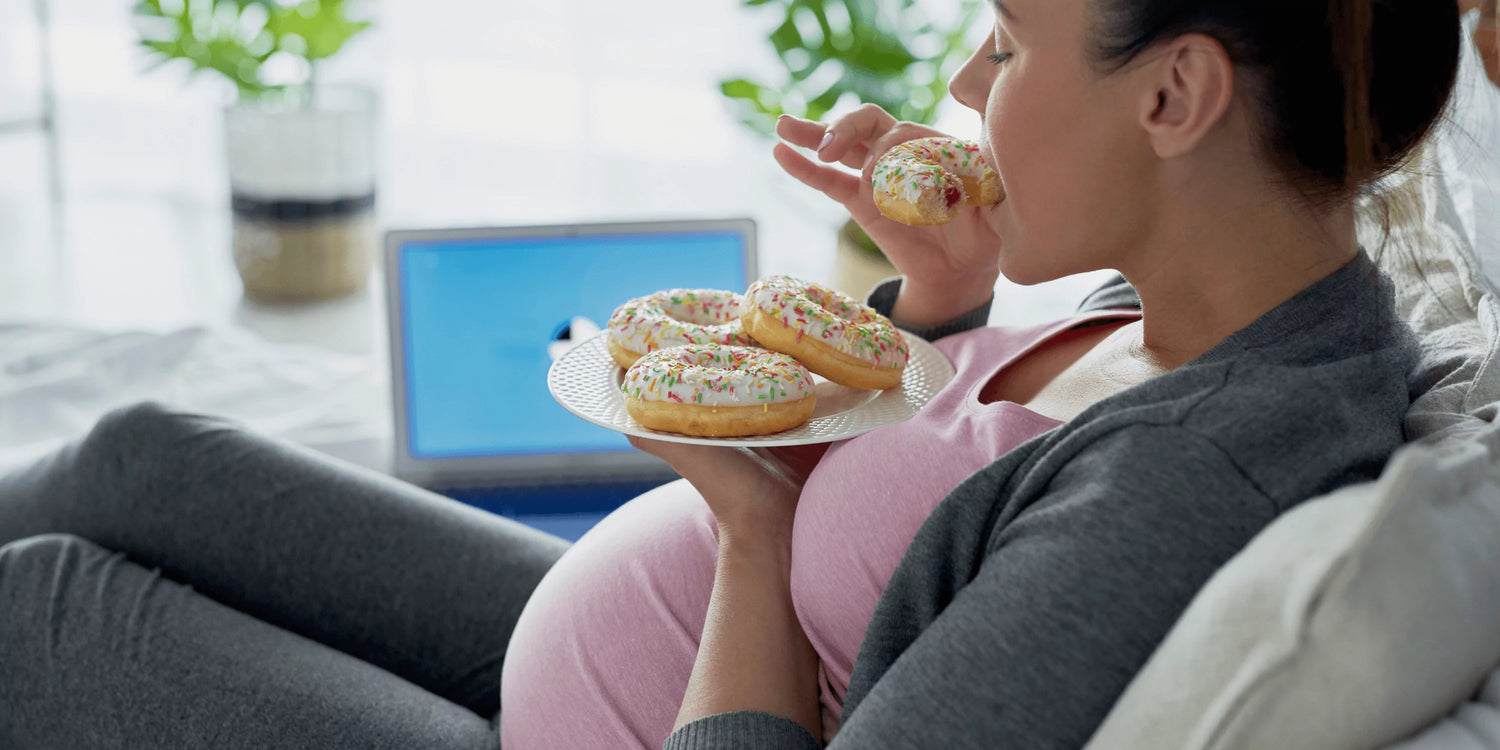Pregnancy cravings are a well-known phenomenon, often portrayed in movies and TV shows as a pregnant woman's sudden and intense desire for a specific food. But how soon do these cravings actually start, and why do they happen? In this article, we'll explore the science behind pregnancy cravings and when they typically begin.
What Are Pregnancy Cravings?
Pregnancy cravings are defined as an intense desire for a specific type of food during pregnancy. These cravings can range from a sudden urge for a specific flavor or texture, to a strong aversion to certain foods that were previously enjoyed.
While the exact cause of pregnancy cravings is still unknown, it is believed that hormonal changes and changes in taste and smell during pregnancy may play a role. Additionally, some experts suggest that pregnancy cravings may be a way for the body to signal a need for certain nutrients.
When Do Pregnancy Cravings Typically Start?

Pregnancy cravings can start at any point during pregnancy, but they are most commonly reported during the first and second trimesters. This is when hormonal changes are most significant and can affect a woman's sense of taste and smell.
According to a study published in the journal Appetite, 50% of pregnant women experience cravings during their first trimester, while 84% experience them during their second trimester. However, it's important to note that every woman's experience with pregnancy cravings is unique and can vary from pregnancy to pregnancy.
What Are Some Common Pregnancy Cravings?
Pregnancy cravings can vary greatly from woman to woman, and even from pregnancy to pregnancy. Some women may crave sweet or salty foods, while others may crave spicy or sour foods. Some common pregnancy cravings include:
- Pickles and ice cream
- Chocolate
- Spicy foods
- Citrus fruits
- French fries
- Pizza
- Ice chips
- Peanut butter
- Watermelon
- Sour candies
Weird Pregnancy Cravings Combinations List
While many pregnancy cravings are for specific foods, some women may experience cravings for unusual food combinations. These cravings may seem strange or even unappetizing to others, but for the pregnant woman, they can be irresistible. Some examples of weird pregnancy cravings combinations include:
- Pickles and peanut butter
- Ice cream and hot sauce
- Chocolate and pickles
- French fries and ice cream
- Watermelon and mustard
- Pizza and ranch dressing
- Spaghetti and ice cream
- Cheetos and cream cheese
- Oreos and orange juice
- Popcorn and ketchup
Why Do Pregnancy Cravings Happen?
As mentioned earlier, the exact cause of pregnancy cravings is still unknown. However, there are a few theories as to why they may occur.
Hormonal Changes
During pregnancy, the body experiences significant hormonal changes, including an increase in estrogen and progesterone. Studies show that these hormones can affect a woman's sense of taste and smell, making certain foods more appealing or unappealing.
Nutrient Deficiencies
Some experts believe that pregnancy cravings may be the body's way of signaling a need for certain nutrients. For example, a craving for red meat may indicate a need for iron, while a craving for citrus fruits may indicate a need for vitamin C.
Emotional Triggers
During pregnancy, which is widely known as a transformative phase for women, emotions can sometimes run high and individuals may seek solace in consuming certain types of food for the purpose of finding comfort or experiencing a sense of nostalgia. As a result, it is not uncommon for pregnant women to develop intense cravings for specific types of foods that they associate with feelings of comfort, satisfaction, and familiarity from their past experiences.
How to Handle Pregnancy Cravings
Pregnancy cravings can be difficult to resist, but it's important to maintain a healthy and balanced diet during pregnancy. Here are some tips for handling pregnancy cravings:
Give in to Cravings in Moderation
It's okay to indulge in your cravings occasionally, but try to do so in moderation. For example, if you're craving chocolate, have a small piece instead of an entire bar.
Choose Healthier Alternatives
If you're craving something unhealthy, try to find a healthier alternative. For example, if you're craving something sweet, opt for a piece of fruit instead of a candy bar.
Listen to Your Body
If you're craving a specific food, it may be because your body is signaling a need for certain nutrients. Pay attention to your cravings and try to incorporate those nutrients into your diet in a healthy way.
Stay Hydrated
Sometimes, thirst can be mistaken for hunger or cravings. Make sure to drink plenty of water throughout the day to stay hydrated and potentially reduce cravings.
Seek Support
If you're struggling to resist your cravings, seek support from your partner, friends, or family. They can help hold you accountable and provide encouragement when needed.
When to Be Concerned About Pregnancy Cravings
While pregnancy cravings are a normal part of pregnancy, there are some instances where they may be a cause for concern. If you experience any of the following, it's important to speak with your healthcare provider:
- Intense cravings for non-food items, such as dirt or chalk (known as pica)
- Cravings for unhealthy or potentially harmful foods, such as alcohol or raw meat
- Cravings that interfere with your ability to maintain a healthy and balanced diet
- Cravings accompanied by other symptoms, such as nausea or vomiting
Conclusion
Pregnancy cravings are a common and often amusing aspect of pregnancy. While they can be difficult to resist, it's important to maintain a healthy and balanced diet for the health of both you and your baby. By understanding the science behind pregnancy cravings and implementing healthy coping strategies, you can navigate these cravings and enjoy a healthy pregnancy.









